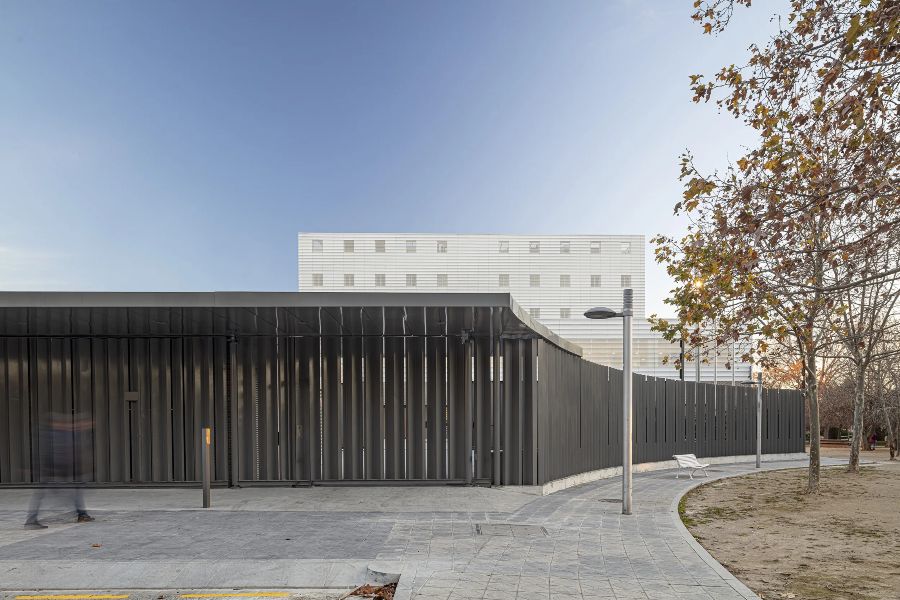Article
Simon Bonk
In the dynamic landscape of modern corrections, the pursuit of innovation and efficacy is a multifaceted endeavor. Within this realm, partnerships emerge as vital conduits for progress, offering avenues for collaboration, resource sharing, and collective problem-solving. From the perspective of vendors operating in this domain, cultivating strategic relationships with various stakeholders becomes not just advantageous, but imperative.
The following is an exploration of the nuanced interplay of partnerships within corrections, focusing on the symbiotic connections between vendors, jurisdictions, charitable foundations, and research and academic organizations, elucidating their pivotal role in driving transformative change.
Why choose a partner over a service provider in corrections?
Ten years ago, when I became the CIO for the Correctional Service of Canada one of my colleagues gave me the book “The Real Business of IT” by Richard Hunter and George Westerman. My biggest take away being, that if we were to strive to be a great IT shop then we needed to elevate ourselves from being a service provider to being a partner with the business owner, in this case corrections operations. Anyone can buy a service provider but if you want to excel at modernization, relationships, partnerships, is what will facilitate value creation. I want to extend this notion of partnerships beyond IT and move it into the corrections ecology. If the correctional ecosystem wants to evolve, it needs to more fully embrace a broad range of partnerships. Telio is one partner that is working to create a model that embraces a wide range of partnerships that empower a modernized approach to successfully reducing recidivism, and improved rehabilitation all leading to broader societal gains.
Nurturing relationships with jurisdictions: Tailoring solutions to local needs
By forging strong ties with vendors and jurisdictions can co-create solutions that are not only technologically sophisticated but also culturally and contextually relevant. This collaborative approach ensures that correctional interventions are tailored to address the specific challenges faced by each community, whether it pertains to rehabilitation, recidivism reduction, or inmate welfare.
How can a jurisdictional/vendor relationship support changes within corrections?
The following practical examples may serve as a starting point.
Telio’s Initiative in the Netherlands: Discussions on leveraging technology to modernize corrections led to pilot projects addressing the Directorate-General Judicial Institutions Service (DJI) challenges. This collaboration between Telio and the DJI tackles issues like secure communication of inmates with the outside world, staffing problems, and enhancing inmate conditions through a value proposition that extended beyond mere product or service provision.
Expansion to the developing world: Specifically, the African continent is rapidly modernizing its prison services. Telio’s partnership with the Namibian Prison Service exemplifies this progress, showcasing a socially responsible approach from pilot phases to extensive implementation. This collaboration aims for mutual benefits, embodying the often-overlooked principle of a win-win situation.
Leveraging charitable foundations: Amplifying impact through philanthropy
In the pursuit of modernizing corrections, the support of charitable foundations can be a catalytic force for change. These organizations, driven by a mission to effect social good, often possess the financial resources and strategic vision necessary to drive systemic transformation. For jurisdictions seeking to make a meaningful impact, cultivating partnerships with charitable foundations can unlock avenues for funding, advocacy, and programmatic support.
A great example is the work the Connecting Hearts Foundation undertook this past Christmas. Multiple jurisdictions partnered with the Connecting Hearts Foundation to make the lives of the inmate’s children a little more human this past holiday season. Together they ensured Santa brought a little extra joy by ensuring the Christmas tree had some gifts underneath for those children.
By aligning their objectives with the philanthropic priorities of these foundations, jurisdictions can access resources that enable them to scale their initiatives and reach underserved populations. Whether through grant funding, capacity-building initiatives, or strategic partnerships, charitable foundations offer Jurisdictions a valuable lifeline in their quest to drive innovation and impact within the correctional sphere.
Moreover, partnerships with charitable foundations bring legitimacy and credibility to endeavors, signaling their commitment to social responsibility and ethical engagement. By leveraging the reputational capital of these foundations, Jurisdictions can enhance their standing within the corrections ecosystem, fostering trust and collaboration with other stakeholders.
What role could partnerships with Research and Academic play in the evolution of correctional practices?
In the field of corrections, evidence-based practices form the foundation for effective interventions. Research and academic organizations play a crucial role by providing empirical insights and program evaluations. They enable vendors and jurisdictions to integrate research, ensuring that solutions are both evidence-based and data-driven. Additionally, they offer access to the latest research for innovative and validated interventions, thereby enhancing impact and effectiveness.
At Telio, we have focused on strengthening these partnerships to improve services and advance thought leadership within corrections. These collaborations support ongoing program evaluation and refinement while fostering a culture of continuous learning and improvement. Through collaborative research projects, pilot studies, and program evaluations, we can continuously refine solutions by incorporating feedback from both practitioners and academic experts.
Can collaboration among vendors within the correctional landscape cultivate an ecosystem of innovation?
Through strategic alliances, joint ventures, or industry consortia, vendors can leverage the collective wisdom of the ecosystem to drive innovation and accelerate the pace of change within corrections.
A successful partnership with Oddity AI is making a difference by bringing violence detection and throw-over identification to the correctional system. Telio’s global relationships, coupled with our understanding of the correctional vertical when partnered with Oddity’s know-how is tackling the challenges of today.
Partnerships lie at the heart of efforts to modernize corrections, offering a pathway to innovation, impact, and sustainability. By cultivating strategic relationships organizations can navigate the complexities of the corrections landscape more effectively, driving transformative change that benefits communities, offenders, and society at large. Telio challenges our sector to embrace our philosophy on partnerships.

Simon Bonk is the former CIO for the Correctional Service of Canada (CSC). A role he held for more than 6 years and retired from after almost 30 years in the Canadian Public Service. On his retirement, he joined Telio as their Chief Research Officer and Director New Business Development. Here, he creates and implements strategic approaches in new markets, and builds relationships with jurisdictions, researchers and other stakeholders to advance thought leadership in the correctional space. He is currently the Corporate Chair of the Corrections Technology Association and previously served as Secretary. In addition, he is the Chair of the IT Network for the International Corrections and Prison Association as well as member of the Technology Committee at the American Probation and Parole Association.
Advertisement



